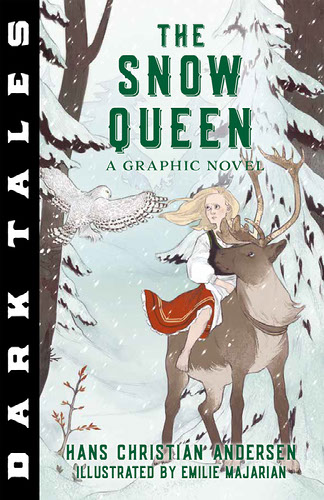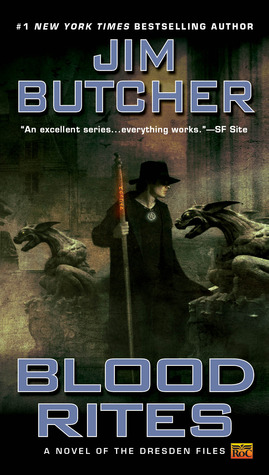[button color=”black” size=”big” link=”http://affiliates.abebooks.com/c/99844/77798/2029?u=http%3A%2F%2Fwww.abebooks.com%2Fservlet%2FSearchResults%3Fisbn%3D9780375757495″ target=”blank” ]Purchase here[/button]
Silas Marner: The Weaver of Raveloe
by George Eliot
After a youth misspent (some would argue) paddling amid the pools of science fiction and fantasy, I have come embarrassingly late to the headwaters of the English novel. And so it happens that book nut with thousands of reviews under his belt may manage to avoid cracking a single book by George Eliot until the eve of his fortieth birthday. After listening to a six-CD audiobook of Andrew Sachs reading Silas Marner all in one day, I am at a loss to explain why I was too intimidated to dip my toe into Eliot’s work before now. Obviously it wasn’t the length of the book, if it can be read aloud in six hours. Maybe it was the supposed seriousness of the book, though I have long since learned not to fear Austen, Brontë, Hardy, and other giants of the 19th century novel. But part of my mission in The Book Trolley is to provide evidence that books like Harry Potter can be a gateway to reading not only other books like Harry Potter, but good books in general. And so I screwed up my courage, bit the bullet, and gave myself over to Silas Marner. But I was in for a delightful surprise.
For all that it is the work of one of the great English novelists of the late 1800s, and is named on most reputable lists of the books you should force yourself to endure before you die so that you can make your miserable life seem longer than it is, it’s not bad. In fact, my impression as I listened to the book was that it was probably the most intelligent piece of literature I have taken in since forever. That didn’t stop me being so interested in it, after one round trip in my daily commute, that I couldn’t put it down. I took it indoors with me and sat in the glow of my TV while the rest of the book played in the DVD player. My upstairs neighbor probably gained IQ points from the vibrations alone.
What makes this an unputdownable classic? Well, besides the fact that it’s short enough to read aloud in one day, it’s a very simple tale, told with great directness and economy of scene, character, and word. To be sure, there are several characters who lend a lot of local color to the story, but they add much more than that. The author’s scrupulous descriptiveness and unsparing examination of the psychological motives of all that the characters say and do seems to account for a large part of the length of the story, and yet the telling is never bogged down in tedious detail. While the characters in the local tap room do double duty as comic relief and as serious character studies of country folk, most of the space is devoted to the tightly intertwined interests of a quite small group of people.
On the one hand, there is the title character. Silas Marner, a funny-looking shrimp of a man, first comes to Raveloe after a betrayal by his best friend and an unjust accusation of theft causes him to lose his fiancée and to be driven out of their religious sect. Disillusioned of God and man, Marner takes up a hermit-like lifestyle, weaving cloth for his Raveloe neighbors and otherwise keeping to himself. Because of his odd looks, his occasional cataleptic fits, his abstinence from churchgoing, among other things, Marner gains a reputation as an eccentric character. He pours all his love into the heap of gold that he accumulates during fifteen years of solitary labor on his loom, and then one night that gold is stolen from his cottage in a crime that goes unsolved for over sixteen years. Out of this devastating loss, however, comes something unexpected and wonderful.
On the other side of the coin is Godfrey Cass, the eldest son of the local squire, whose essentially good-natured character becomes a fertile ground for evil when his hopes of marrying the lovely Nancy Lammeter are blighted by the blackmailing, sponging, deceiving, and stealing ways of his brother Dunstan—well, all that plus his secret marriage to an opium addict and his unacknowledged fatherhood of a tiny little girl. When the old ball-and-chain drops dead on Silas Marner’s doorstep, Godfrey makes a compromise with his conscience and allows Marner to raise his daughter rather than admit to being her father, so that he can marry Nancy. The final question, after a couple of really uncomfortable scenes in which the identities of both the thief and young Eppie’s father are revealed, is: Who will have true happiness: the rich squire or the melancholy outcast?
While this novel explores the consequences of a burglary, a man’s disappearance, a shameful secret, a child’s abandonment, and a man’s advancement through perjury and betrayal, Silas Marner comes across as a closely woven piece of work, cut and pieced together along the cleanest of lines, and fitted snug to its purpose. It takes thought-provoking pokes at religious faith, social hierarchies and prejudices, the industrial revolution, and the mixed nature of beings who (with perhaps one exception in this novel) have both a bad and a good side to them. It is a story brightened by the transforming presence of the angelic Eppie, and shadowed by the dark character and even darker fate of Dunstan Cass. And it is neither oppressively weighty nor tiresomely paced, like a reading assignment rightly to be feared. Instead, it is lightly, quickly, and enjoyably read, with a direct appeal both to one’s mind and heart.
George Eliot was the pen-name of Mary Ann (or Marian) Evans, an unconventional woman who lived from 1819 to 1880 and set out to prove that novels by women didn’t need to be full of fluff and vapors. Her half-dozen other novels include Adam Bede, The Mill on the Floss, Daniel Deronda, and Middlemarch, which Virginia Woolf called “one of the few English novels written for grown-up people” (source: Wikipedia). I don’t know why we still call her George when “Currer Bell” has gone back to being just plain Charlotte Brontë, but there it is. And as soon as one of Eliot’s other books becomes available at my friendly local library, there I will be.



